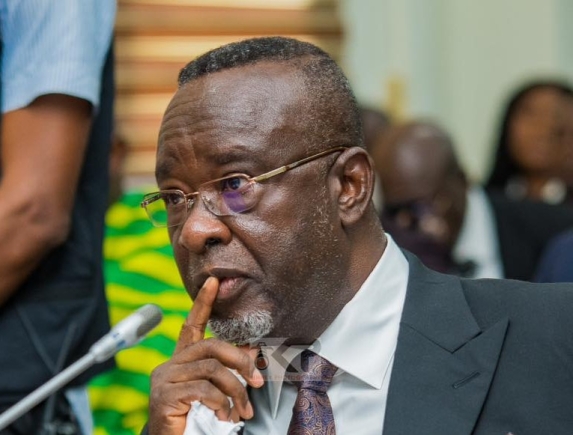This piece is about the Chief Justice nominee, Paul Baffoe-Bonnie, who was being vetted as I wrote this.
I need, at the outset, to congratulate him, in advance, on reaching the much-coveted position of Head of the Judiciary, should his appointment be confirmed, which is most likely.
When I began the legal journey at the University of London, I harboured ambitions of becoming a judge until I was confronted with reality: being a judge is a serious business that demands, of necessity, a very private and introverted life, qualities far removed from my easy-going, very public and ‘in your face’ extrovert character.
I wouldn’t last a second as a judge.
Substance
On the substance of what Justice Baffoe-Bonnie had to say, I cannot but be impressed with his answers to some of the questions posed to him in terms of his plans for the judiciary on his confirmation.
As has been canvassed forcefully on these pages, the legal system is choked with endemic delays.
It is, therefore, very refreshing to hear that His Lordship shared the same sentiment about the devastating effect that delays have on justice delivery.
It was a breath of fresh air to hear how he wanted to leverage AI, and by extension, technology in this course.
The fact that Justice Baffoe-Bonnie says he has plans to utilise AI in the empanelment of judges, an issue that has remained vexed and contentious over the years, is very encouraging.
He (C.J. in waiting) also said that part of the reasons for the delays in the system, especially in civil litigation, is the C.1 47 of 2004 (Civil Procedure Rules), which he described as “dead on arrival”.
The fact that the C.1 47 had survived to this day is really an indictment of the lack of genuine desire on the part of former Chief Justices to free the system of the canker of delays.
Reforms
The incoming Chief Justice intends to use the Rules Committee of the Judicial Service to bring in the necessary reforms by way of new rules responsive to the speedy adjudication of cases.
In this regard, it reminds me of how the Woolf reforms in England during my early practice in the 90s transformed and revolutionised civil justice delivery.
There were systemic problems in civil justice delivery, as many felt it was excessively costly, slow and complex.
All of these factors are prevalent in the Ghanaian context.
The cost of litigation is unduly high and this effectively prices many ordinary people out of the court system, thereby affecting access to justice ‒ an important right in a democracy.
Also, there is excessive delay, with an average of three to four years for completion of civil cases, with land cases travelling, sometimes taking up to five years and over. Matters are worse in the criminal litigation sphere.
The Republic vs William Baah and Others (the Major Mahama case in which I was involved) took seven years to complete, despite the unusual step of being given regular sitting times due to the national interest it evoked.
“Justice delayed”, as Blackstone, the celebrated English jurist, said, “is justice denied”.
It is hoped that his Lordship’s approach to solving the problem will not just scratch the surface but be a comprehensive overhaul of the system, as happened in the Woolf reforms in England.
The incoming Chief Justice also decried the lack of access to justice ‒ the high cost of litigation, and the inadequacies of the Legal Aid Commission, largely as a result of a lack of proper funding.
Hope
It’s my hope that he engages the government on the unmet legal needs of Ghana, especially with regard to legal aid funding.
There was also talk of making the e-justice serve its purpose.
A lot of the problems in the system, like filing, service of court documents, production of court proceedings, and compilation of appeals records, can easily be resolved by properly deploying the e-justice.
The incoming Chief Justice seems to be in support of limiting or reducing the areas of jurisdiction of the Supreme Court.
Whilst that is a good policy approach, the Constitutional provision of allowing appeals at every level should be jettisoned.
Rather, as in many advanced jurisdictions, litigants have to seek leave to appeal, as that is the only effective method to reduce the caseload of the appellate courts.
A light at the end of the tunnel with His Lordship’s imminent appointment? Time will tell!
The writer is a lawyer.
E-mail: georgebshaw1@gmail.com

